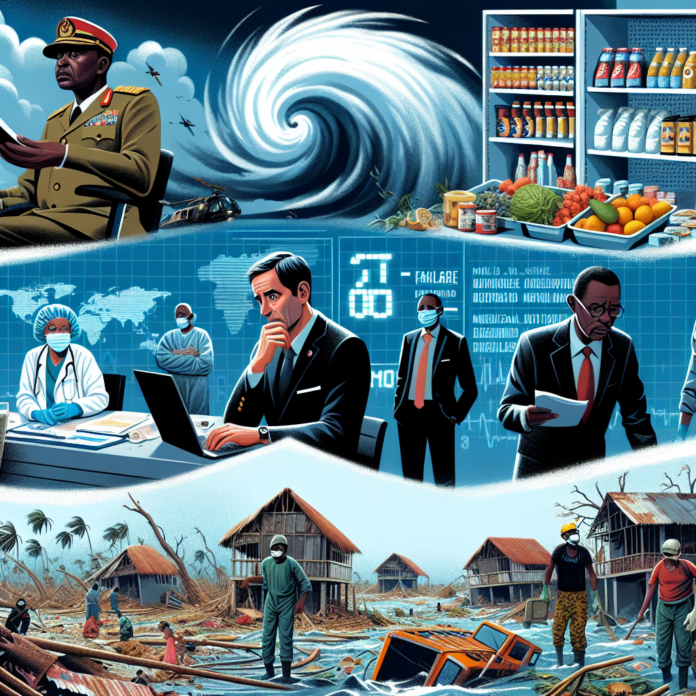Concerns Grow Among Mayotte Officials Over Hunger and Disease Following Cyclone as Death Toll Increases in Mozambique
Concerns Rise Over Hunger and Disease in Mayotte Following Cyclone
The authorities in Mayotte, a French overseas department located in the Indian Ocean, are increasingly alarmed by the potential for hunger and disease in the aftermath of a devastating cyclone. The storm has wreaked havoc on the region, leaving many residents in dire conditions and raising urgent questions about food security and public health.
Local officials have reported significant damage to infrastructure, agriculture, and housing, exacerbating the already precarious situation for many families. With crops destroyed and supply chains disrupted, there is a growing fear that food shortages could lead to widespread hunger, particularly among the most vulnerable populations, including children and the elderly.
Rising Death Toll in Mozambique
In neighboring Mozambique, the impact of the same cyclone has been catastrophic. The country is grappling with a rising death toll, with reports indicating that hundreds of lives have been lost. The cyclone’s strong winds and heavy rainfall have caused severe flooding, displacing thousands and damaging homes, schools, and critical services.
Mozambican authorities are working tirelessly to respond to the crisis, deploying rescue teams and establishing temporary shelters for those affected. However, the scale of the disaster poses significant challenges, as many regions remain inaccessible due to the flooding. The government is also mobilizing resources to provide food, clean water, and medical assistance to the impacted communities.
Public Health Risks
The aftermath of the cyclone presents serious public health risks in both Mayotte and Mozambique. Standing water from the floods creates ideal breeding grounds for disease-carrying mosquitoes, increasing the likelihood of outbreaks of malaria and other vector-borne diseases. Additionally, the disruption of sanitation services raises concerns about waterborne diseases, such as cholera, particularly in overcrowded shelters.
Health officials are urgently calling for increased support and resources to address these emerging health threats. Vaccination campaigns and health education initiatives are critical to preventing disease outbreaks and ensuring the well-being of affected populations.
International Aid Efforts
In light of the unfolding humanitarian crisis, international organizations and neighboring countries are mobilizing aid to assist those impacted by the cyclone. Relief efforts are focused on providing essential supplies, including food, water, and medical care, as well as restoring critical infrastructure.
Governments and non-governmental organizations are coordinating their responses to ensure that aid reaches the most affected areas quickly. Donations and support from the international community will be vital in helping both Mayotte and Mozambique recover from this natural disaster and rebuild their communities.
As the situation develops, local authorities and humanitarian agencies are urging residents to remain vigilant and prepared for potential aftershocks from the cyclone, both in terms of physical safety and health. The road to recovery will be long, but with concerted efforts, there is hope for rebuilding and resilience in the face of adversity.


